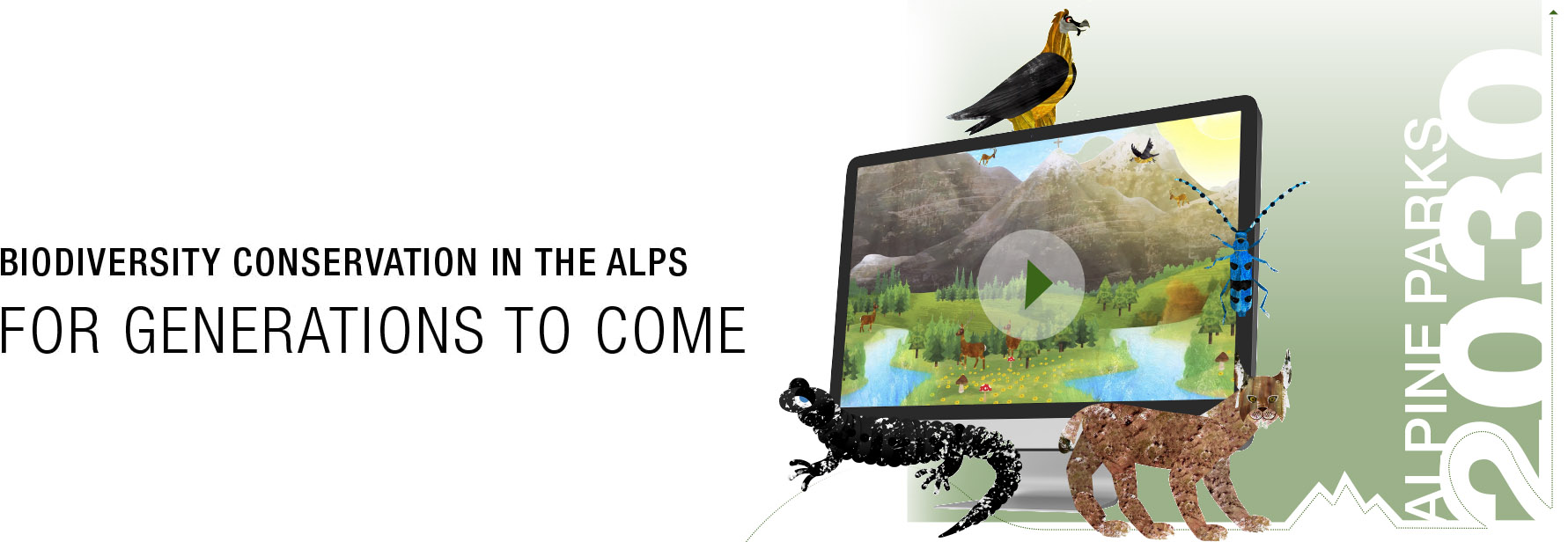
Est. 2005 (officially labelled since 2012 as a Regional Nature Park)
Goals:
To preserve and enhance cultural and natural landscape; to promote sustainable economic development in the region; and, finally, to promote education for sustainable development and raising awareness for environmental protection
Regional environmental challenge(s):
As Switzerland’s largest regional nature park, Parc Ela comprises a very diverse area geographically, where value creation is to be driven and the exit of young people reduced, while maintaining and protecting the natural treasures. Harmonising the different demands of land use and conservation in a changing world (renewable energy, sustainable mobility, climate change, winter and summer tourism to name but a few) is our big challenge for the present and future.
Successes:
3 oasis for insects built;
4.7 km dry stone walls reconstructed;
8 water bodies established and/or rehabilitated;
about 375 ares of hedges, 1700 ares of moorlands and 10360 ares of pasture landscape and forest area maintained;
more than 16 consultations for insect-friendly gardening
and more than 80 excursions with the childrens’ group “Detectivs” lead through
Learn more about Parc Ela's initiatives and projects on their website.
What do you gain from being an ALPARC member?
We definitely gain an international perspective on transborder challenges we all experience at a local level. We highly appreciate the network and its members who contribute to an active Protected Area community at the Alpine level.
What challenges do you see for protected areas in the coming years/decades?
Among the major threats are to be mentioned climate change, biodiversity loss and growing (summer) tourism which is important on an economic level but needs to be guided wisely.
How important do you think protected areas will be in the coming years?
Protected areas are and will be of crucial importance, as these are the regions where biodiversity can thrive. Moreover, they serve as model regions for sustainable development as they implement concrete projects with a measurable impact on the territory.
What is your advice for those interested in future alpine conservation efforts, or those interested in outdoor alpine activities?
Many things have already been said regarding conservation efforts, unfortunately, people need to experience the detrimental effects biodiversity loss causes before truly believing it and change behavior. Hence, it is crucial to form alliances, join specific projects and cooperate for levelling the topic up and increasing its importance at the political agenda. People interested in outdoor alpine activities shall become acquainted with the area, stick to the routes and follow general recommendations such as those of the campaign Be Part of the Mountain. Moreover, the parc staff and local guides might provide guidance in understanding the interdependence between flora and fauna and provide in-depth insights to the ecosystems which are to be explored.
Any final words of wisdom?
It is important to bravely embrace new paths for challenging the major threats to our living environment.
“Biodiversity protection on smaller watercourses in the German-speaking Alpine region”
“Biodiversitätsschutz an kleineren Fließgewässern im deutschsprachigen Alpenraum”

To celebrate the first edition of the Climate Hour, we have gathered below a small sample of the actions for climate being led by Protected Areas across the Alps, together with a photo collection featuring the engagement of “Alpine protected areas for climate” !
For the first edition of the Climate Hour, Nature Park Visitor Centers will give away ecological footprint questionnaires to the visitors.
With its long-term ALPARCLIM program launched in 2020, ALPARC wants to publicize campaigns by the parks that serve climate protection and have concrete effects.
The park has integrated the climate emergency as a new transversal objective of the 2022-2031 park charter and obtained the “Cité de l'énergie” label in 2021.
The “Alpin bus” avoids the use of private cars and Ernen is part of the “energieregionGOMS”.
The park takes advantage of the clearly visible consequences of climate change in the cave to raise awareness among the visitors.
The park takes advantage of the clearly visible consequences of climate change in the cave to raise awareness among the visitors.
In 2020 the park started a new cooperation with the Technical University of Munich for a new project on climate change and biodiversity.
Francija predstavi idejo o ustanovitvi mreže zavarovanih območij v Alpah
Ustanovitev Alparca med prvo mednarodno konferenco zavarovanih območij v Alpah v Narodnem parku Écrins (FR)
Priprava osnutkov pravil in predpisov Mreže zavarovanih območij v Alpah (ALPARC); uradno priznanje prispevka Alparca k uresničevanju Alpske konvencije
Izvedba Konference evropskih gorskih zavarovanih območij
Usmerjevalni odbor Alpske konvencije zaupa Alparcu izdelavo študije o ekoloških koridorjih in čezmejnih območjih
ALPARC praznuje deseto obletnico obstoja

Delovna enota Alparca postane »Task Force zavarovana območja« pri Stalnem sekretariatu Alpske konvencije
Uradna vzpostavitev partnerstva z organizacijami CIPRA, ISCAR in WWF pod okriljem Iniciative za ekološki kontinuum
ALPARC skupaj s partnerskimi organizacijami začne izvajati velikopotezni projekt urejanja ekoloških koridorjev s ciljem vzpostavitve pravega ekološkega omrežja
Pogodbene stranke Alpske konvencije skupaj s Karpatsko konvencijo in Konvencijo o biotski raznovrstnosti podpišejo Memorandum o sodelovanju.
ALPARC postane koordinator dejavnosti Platforme »Ekološko omrežje« Alpske konvencije
Januarja ALPARC pridobi pravni status »društva« v Franciji in se tako loči od Stalnega sekretariata Alpske konvencije. Februarja ALPARC in Alpska konvencija podpišeta Memorandum o sodelovanju, katerega namen je olajšati sodelovanje med organizacijama in omogočati sinergije v obojestransko korist.
ALPARC praznuje dvajseto obletnico obstoja.
ALPARC organizira prvo izdajo mednarodnega dogodka »Mladi na vrhu« z namenom povezovanja alpske mladine z njihovo dediščino in naravo.
ALPARC začne z dejavnostmi na področju »Regionalnega razvoja in kakovosti življenja« v okviru projektov InnovAlps in WeWild
ALPARC je vodilni partner evropskega triletnega projekta Alpine Space ALPBIONET2030 za alpske prosto živeče živali in rastline ter projekta YOUrALPS za vzpostavitev strukture izobraževanja za gore ter učinkovitejšo praktično uresničevanje vrednot in znanj v zvezi z gorami. ALPARC postane partner evropskega dvoletnega projekta Alpine Space GaYA za krepitev participacije mladih pri upravljanju v Alpah.
Začetek kampanje »Be Part of the Mountain« za omejevanje vplivov zimskošportnih rekreativcev na alpske živali
11. aprila je bila v Naravnem parku Nagelfluhkette (Balderschwang, Nemčija) uradno ustanovljena nova regijska platforma Alparca »ALPARC CENTR’ALPS«, da se mreži omogoči krepkejša regionalna prisotnost in tesnejši stiki
ALPARC praznuje svojo 25. obletnico v Monêtier-les-Bains, Ecrins narodni park.
S 5 projektnimi partnerji OpenSpaceAlps in 10 projektnimi partnerji HEALPS2 so ALPARC in projektni partnerji uspešno zaključili te projekte Alpine Space.
Regionalna platforma ALPARC CENTR'ALPS ima kontaktno točko z lastnim osebjem v Immenstadtu (DE).
Alpine Space projekt „PlanToConnect“ (projekt temelji na rezultatih projekta ALPBIONET2030). Cilj: vključevanje ekološke povezanosti v prostorsko načrtovanje na območju Alp.
Začetek dveh projektov Alpine Space: „LiveAlpsNature“ (vodilni partner ALPARC). Cilj: ukrepi za usmerjanje obiskovalcev na zavarovanih območjih v Alpah z inovativnimi ponudbami (OneHealthApproach) in sodobnimi digitalnimi platformami za dejavnosti v naravi. „AlpsLife“ (ALPARC, osrednji projektni partner). Cilj: Zagotavljanje metod za skupno spremljanje biotske raznovrstnosti in alpski sistem zgodnjega opozarjanja na izgubo vrst in habitatov.
30 let mednarodnega sodelovanja zavarovanih območij v Alpah v okviru mreže ALPARC.